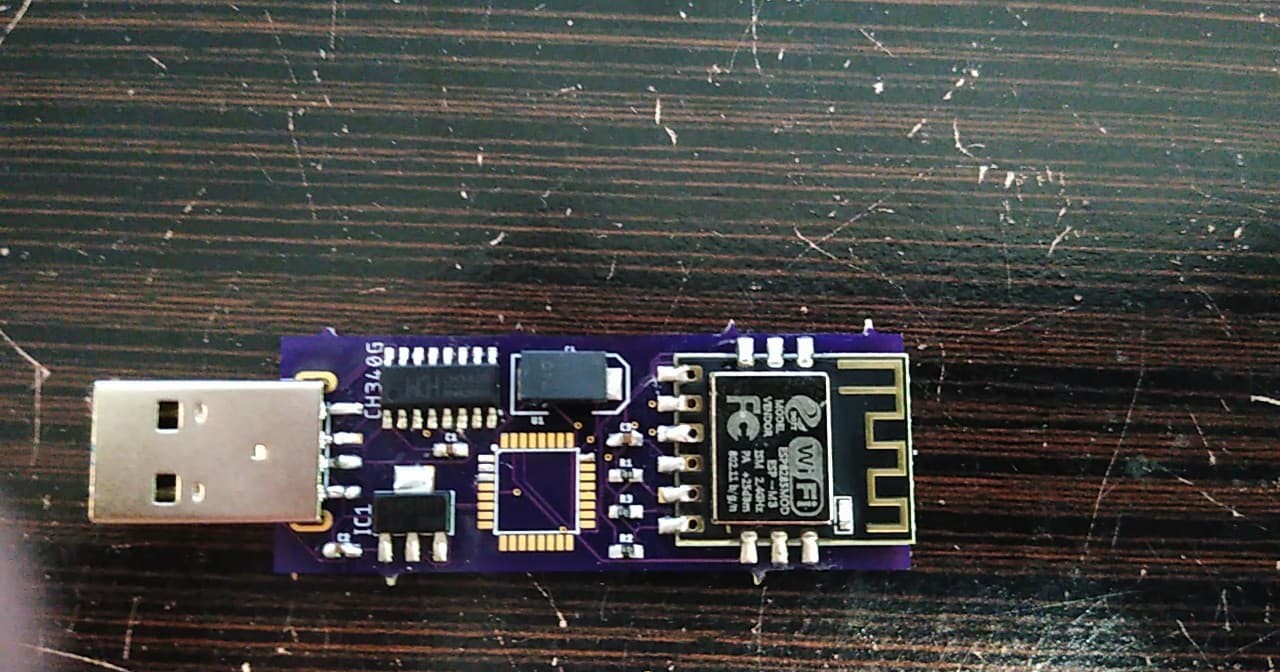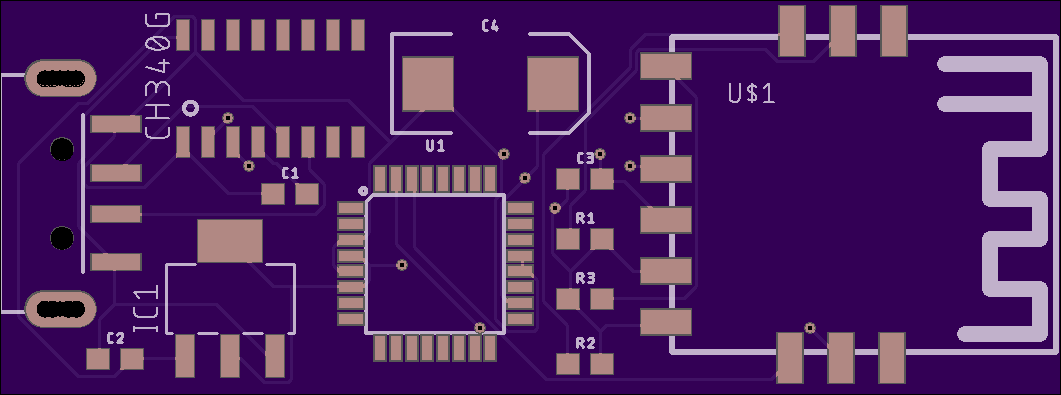Origin Story:
At MIT, I administer a few servers run by me and my friends, that all receive DHCP info from a one of the central routers, as even for devices registered statically, the (unchanging) IP address and other routing still has to be re-acquired on boot-up. While this system usually works, there are often difficulties in the routing info being properly sent to the computers, which means that it is impossible to SSH into them. When this happens, we are forced to drag a monitor/keyboard into the closet with all the servers, pull them out (VGA ports are on the back), and manually fix the route tables to bring them online. After many months of this frustration, I realized there had to be a better way to do this. Thus, RapidAccess was born.
RapidAccess is a USB dongle based on the ESP8285 (think ESP8266 with builtin flash), that aims to alleviate these problems. When plugged into a computer's USB port, the rapid-client application on the PC immediately notices this new device, and starts the authentication process. After a successful validation, the RapidAccess dongle broadcasts a WiFi network, which you can then SSH into from your laptop or other portable device. This SSH connection is then forwarded across the USB link by using sshd in "inetd mode," which allows the stream to come from a non-socket source. With it's own configuration interface, the dongle allows for either broadcasting it's own WiFi network, or connecting to an existing one. Now, when your server goes offline, instead of having to deal with monitors and other peripherals, you simply plug this flash-drive sized device into the front, and can SSH as though the network connection was still up!
As of now, the RapidAccess dongle is still in development stages, but we expect full documentation, a website, and a KickStarter campaign shortly. If you have any questions or suggestions, don't hesitate to reach out! As always, this will be a fully open-source project (hardware, esp8266 software, and computer client), with repositories for each being released once they are in a usable/organized format, which should be soon!
 Ian McJohn
Ian McJohn


Great idea, although I think your project can be easily transferred to TTGO T-Display ESP32, which costs less than 10$.